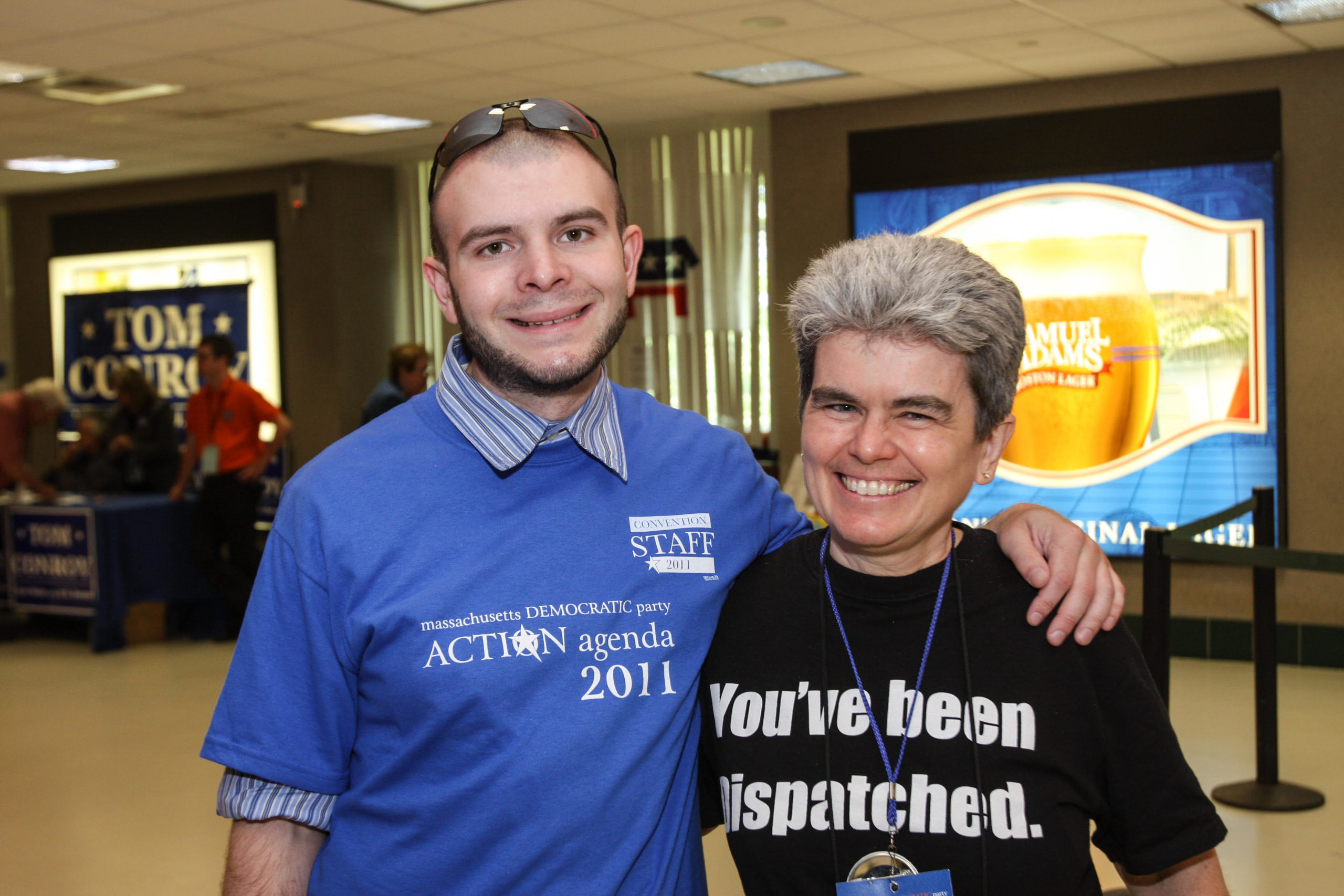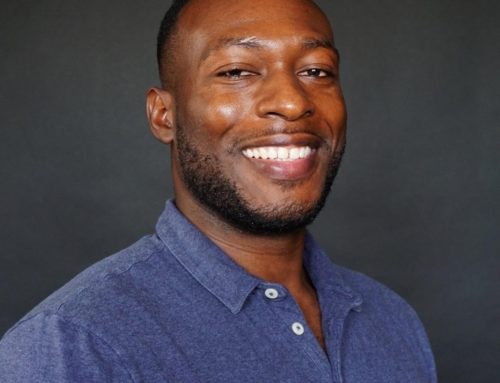WESTBOROUGH, Mass. — Democratic activist Kate Donaghue is a political force in Massachusetts. Once referred to by the Boston Globe as the “iron woman” of political canvassers, she has organized the Commonwealth extensively over the years, criss-crossing communities, training volunteers and coordinating local caucuses.
She even has the battle scars to prove it. In 2014, at the age of 60, Donaghue seriously injured her left shoulder and wrist while canvassing on a razor scooter. Two years later, while knocking on doors for Hillary Clinton, she slipped in the snow breaking her right wrist.
But these injuries could never compare to the pain Donaghue experienced in 2018.
On March 12 of that year, Donaghue’s only child, Brian Simpson, passed away from a fentanyl overdose at the age of 32. She took that sorrow, that helplessness, and responded the only way she knew how: through grassroots activism.
After Brian’s death, State Senator Jamie Eldridge (D-Acton) adjourned the Massachusetts Senate in Brian’s memory. A few weeks later, Donaghue was at the State House advocating with other parents, hoping to shed some light on the issues surrounding the nationwide opioid crisis.
“We lose so many people to the opioid crisis,” said Donaghue. “People live longer when they use something like Suboxone, so something I have been advocating for is ending the stigma around using medication.”
Four weeks prior to Brian’s overdose, he was administered Narcan, which is a medication given to those experiencing an opioid overdose. At that time, Donaghue asked her son if he wanted to consider taking any over the counter medication to help in his recovery. He said didn’t want to trade one addiction for another — a statement Donaghue didn’t entirely agree with.
“In between the time he was Narcanned and the time he died, I asked him if he was considering any medication. He said without a driver’s license, he couldn’t get methadone at the clinic,” explained Donaghue.
Brian’s struggle with addiction began when he was in high school, after he was diagnosed with depression around the sixth grade. Brian self-medicated with alcohol and marijuana, then became addicted to legally prescribed oxycodone, which eventually led to heroin.
Brian’s struggles with addiction had many vicissitudes. He was in and out of recovery, and there were times when things appeared to be going well. Between 2010 and 2012, Brian moved to Texas to be with his then-girlfriend Nicole, a math teacher. He then relapsed, which put an end to the relationship. In 2014, Brian fell off a bridge in Houston, breaking his back.
“He didn’t jump off a bridge, he fell off a bridge,” explained Donaghue. “He fell because of risky behavior as a result of being under the influence of drugs.”
Brian also spent some time in Florida before returning to Massachusetts.
“I didn’t know Brian started using heroin until he was in Texas; when he was struggling in Florida, he was afraid to come back to Massachusetts where oxycodone wasn’t readily available,” said Donaghue. Later adding, “I would like to bring more attention to the difficulties in finding a physician to prescribe Suboxone and how our regulations make it difficult to support people to get the help they need.”
And she has.
On March 12, 2021, the third anniversary of Brian’s death, Donaghue held a virtual “Brian Donaghue Simpson Opioid Awareness Day” over Zoom with guest speakers that included United States Senator Ed Markey.
“It is our moral obligation to respond, and I want everyone to know that I have been working with our delegation in Washington to respond to this crisis,” Markey said during Donaghue’s awareness day. “I am pleased to report that yesterday President Biden signed the American Rescue Plan into law, and it provides $4 billion in funding to increase access to mental health and substance use disorder services.”
In addition to ending the stigma around substance use disorders and increasing access to medications that help aid in opioid recovery, Donaghue says she also wants to focus her attention on the treatment of minimum wage employees in the American workplace. On the day that Brian passed away, he was fired from a Walgreens in Quincy. Upset, he bought some drugs with his last paycheck and overdosed.
“I would like to bring attention to the whole issue of income inequality — how we treat our minimum wage employees as disposable, and how something like a job loss can lead to death,” said Donaghue. “They treat lower paid people in our society as if they are disposable.”
Donaghue’s strategy in combating the opioid crisis and enacting lasting change remains compassion, care and action.
“It’s important that we treat substance use disorder like the public health crisis it is and not a moral failing,” said Donaghue.






Leave A Comment